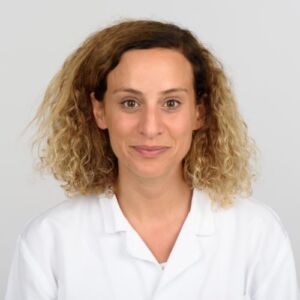Active ingredients for Parkinson's treatment
The corresponding medication is primarily intended to rebalance the messenger substances in the brain, above all dopamine. This usually works well for years, but the dosage must be checked and readjusted several times in between.
The following active substances are used for Parkinson’s disease (incomplete list):
- Levodopa (L-dopa), a precursor of dopamine. L-dopa is effective against akinesia and muscle stiffness, and in many patients also against tremors. Despite its advanced age, this treatment approach is still the most effective and at the same time very well tolerated, but the medication must be taken several times a day and the risk of motor fluctuations is increased during the course of treatment (see below).
- COMT inhibitors. Drugs in this group can improve the availability of L-dopa and prolong the duration of the L-dopa effect.
- MAO B inhibitors. These active substances can slow down the breakdown of dopamine and have similar effects to COMT inhibitors.
- Dopamine agonists. They behave like dopamine and have a stimulating effect on the ends (the receptors) of the nerve cells to which dopamine docks. However, they are chemically different structures. The major advantages of dopamine agonists are their long-lasting effectiveness (1-2 applications per day are sufficient) and the low risk of motor fluctuations (see below). On the other hand, these drugs cause significantly more side effects, including impulse control disorders (e.g. more desire for sex, eating, playing, shopping, hobbies), daytime sleepiness, hallucinations or swollen legs.
- Anticholinergics. These active ingredients improve the imbalance of messenger substances in the brain. They do this by reducing the excess supply of acetylcholine caused by the dopamine deficiency. These anti-tremor drugs are now rarely used because their side effect profile is unfavorable.
Over the course of many years, many patients experience so-called motor fluctuations: high doses of medication (especially L-dopa) in the blood lead to disruptive and uncontrollable excessive movements (dyskinesia), while low levels in the blood lead to greatly reduced mobility. This up and down is very disruptive for patients and very often massively restricts the ability to plan the days, as the levels fluctuate from day to day.
As soon as motor fluctuations occur in a patient, even if they are still very mild, we consider alternative treatment strategies in order to offer patients the best possible treatment prospects immediately and for the future. The same applies to Parkinson’s patients and patients whose tremor (trembling) cannot be sufficiently well controlled with medication.
The entire range of internationally established and approved alternative treatment strategies is available in Zurich (see also the separate section on this):



